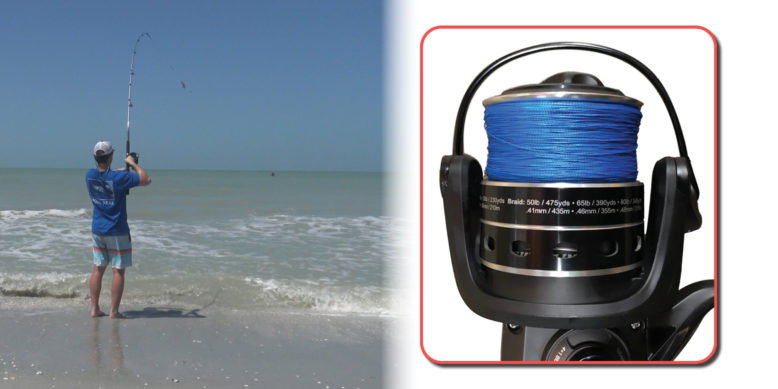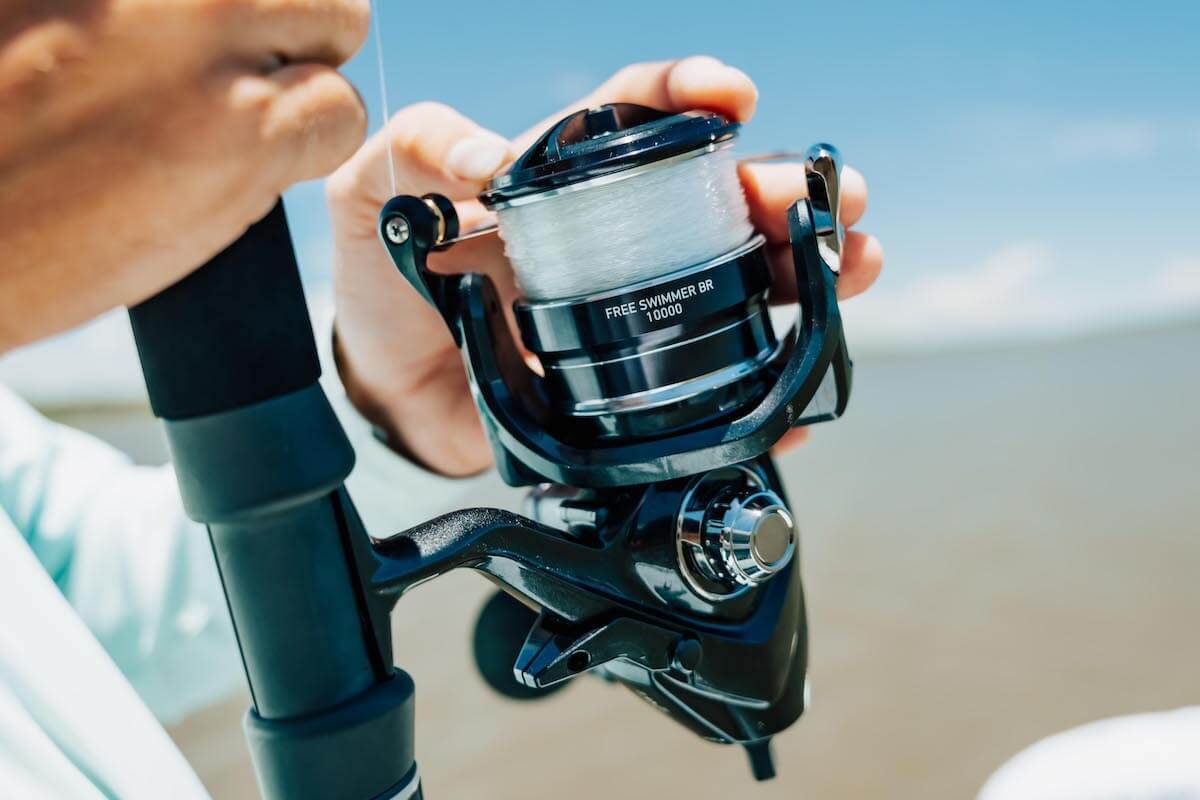To clean fishing reels used in saltwater, remove the spool and use a soft-bristled brush to remove salt or dirt from the gears, spool, and body. Clean the reel with mild soap and warm water, then dry it thoroughly before storage.
Cleaning your reels after saltwater use is essential for their longevity.
Why Cleaning Fishing Reels In Saltwater Is Important
Cleaning your fishing reels after using them in saltwater is crucial to ensure their longevity and optimal performance. Neglecting this important maintenance task can result in damage and corrosion. It is recommended to clean your saltwater reels after every use, as soon as possible after your fishing trip.
Waiting until later or when you have time is not sufficient. By cleaning your reels regularly, you can extend their lifespan even if you use them in saltwater on a daily basis. To clean your reel, remove the spool and use a soft-bristled brush to eliminate any salt or dirt from the gears, spool, and body of the reel.
Avoid using soap or detergents, as they can be harmful to the reel. Taking the time to clean your fishing reels properly will ensure they remain in good condition for your future fishing adventures.

Credit: www.catfishedge.com
Essential Tools And Supplies For Cleaning Saltwater Reels
Cleaning your fishing reels after using them in saltwater is crucial and should be done promptly. It is not sufficient to wait until tomorrow or when you have spare time, as the reels need immediate attention. By properly cleaning your reels, you can extend their lifespan, even if they are used in saltwater on a daily basis.
To clean your saltwater reels effectively, you need to identify and gather the necessary tools and supplies. This includes cleaning agents and lubricants specifically designed for saltwater environments. Additionally, you will need proper cleaning equipment and brushes for different parts of the reel.
These tools and supplies are essential for maintaining the performance and longevity of your saltwater fishing reels.
Step-By-Step Guide To Cleaning Saltwater Fishing Reels
Cleaning saltwater fishing reels is essential to ensure their longevity and optimal performance. Here is a step-by-step guide to help you clean your saltwater reels effectively. Begin by disassembling the reel and removing the spool. Next, rinse off salt and debris from all reel components.
Pay close attention to the main housing, gears, and other internal parts when cleaning. Once cleaned, make sure to lubricate the reel to ensure smooth operation. Finally, reassemble the reel, ensuring all parts are properly aligned. Remember, regular maintenance and cleaning of your fishing reels is crucial if you want them to last a long time, even with daily saltwater use.
Don’t postpone cleaning your reels; do it as soon as possible after each trip for the best results.
Additional Maintenance Tips For Saltwater Fishing Reels
To properly store saltwater reels and prevent damage, it is important to follow some additional maintenance tips. Regular inspection and cleaning of the drag systems are crucial to ensure optimal performance. This includes removing any salt or dirt from the gears, spool, and body of the reel using a soft-bristled brush and mild soap.
Preventative maintenance is also essential to avoid issues and extend the lifespan of your reel. This can involve lubricating the pinion gear and reassembling the main housing correctly. It is recommended to clean your fishing reels after each saltwater trip to ensure they last longer, even with daily use in saltwater.
So, remember to rinse your reel as soon as possible after fishing and avoid postponing the cleaning process. By following these maintenance tips, you can keep your saltwater fishing reels in excellent condition for years to come.
Recommended Cleaning Products And Brands For Saltwater Fishing Reels
Cleaning your saltwater fishing reels is essential for their longevity and optimal performance. It is important to rinse your reels as soon as possible after your fishing trip in saltwater. Delaying the cleaning process can shorten the lifespan of your reels, even if they are used regularly in saltwater.
Remember, cleaning them immediately after use is the key to their longevity. You should avoid using soap or detergents as they can damage the reels. Instead, consider investing in reel wash solutions specifically designed for saltwater reel maintenance. These cleaners are highly effective in removing salt and dirt from the gears, spool, and other parts of the reel.
Some recommended brands for reel cleaning products include Penn Rod Reel Cleaner, Lew’s Speed Cleanz Reel Cleaner, and Ardent Reel Kleen. Regular maintenance and cleaning will ensure that your saltwater fishing reels last for a long time and perform at their best.
Faqs: Cleaning Fishing Reels For Saltwater Fishing
Should you rinse your reel after every saltwater fishing trip? Absolutely! Cleaning your fishing reels after using them in saltwater is crucial and should be done as soon as possible after your trip. Waiting until later or when you “have time” is not sufficient.
Regularly cleaning your reels will ensure their longevity, even with daily use in saltwater. How often should you deep clean your saltwater fishing reel? Deep cleaning your saltwater fishing reel should be done periodically, depending on how frequently you use it and the conditions it is exposed to.
A general rule of thumb is to deep clean it every few months or as needed. Can you use regular freshwater reel cleaners for saltwater reels? No, it is not recommended to use regular freshwater reel cleaners on saltwater reels.
Saltwater reels require specific cleaners designed to remove salt and prevent corrosion. Is it necessary to lubricate the reel after cleaning? Yes, it is necessary to lubricate the reel after cleaning. Lubricating the reel will help maintain its smooth operation and protect it from the harsh saltwater environment.
Frequently Asked Questions Of How To Clean Fishing Reels Saltwater
Should You Rinse Your Reel After Saltwater Fishing?
Rinsing your reel after saltwater fishing is crucial for its longevity and should be done immediately.
What Is The Best Way To Clean Fishing Reels?
To clean fishing reels, rinse them with freshwater immediately after saltwater fishing. Remove the spool and brush away any salt or dirt. Clean with mild soap and warm water, then dry thoroughly before storing. Avoid using detergents or soaps.
How Do You Maintain A Salt Water Reel?
To maintain a salt water reel, follow these steps: 1. Remove the spool and use a soft-bristled brush to clean the gears, spool, and body. 2. Use mild soap and warm water to clean the reel. 3. Dry the reel thoroughly with a soft cloth.
4. Store the reel in a dry, protected area to prevent corrosion. Regular cleaning and maintenance will ensure the longevity of your salt water reel.
Does Salt Water Damage Reels?
Salt water can damage reels by corroding metal components and degrading fibers, reducing their effectiveness.
Conclusion
Cleaning your fishing reels after using them in saltwater is crucial for their longevity and performance. It is important to rinse your reels as soon as possible after your fishing trip, as saltwater can be corrosive and damaging to the metal components of your reel.
By cleaning your reels regularly, you can ensure that they last you a long time, even with frequent use in saltwater. To clean your reel, start by removing the spool and using a soft-bristled brush to remove any salt or dirt from the gears, spool, and body of the reel.
Use a mild soap and warm water to clean the reel, making sure to dry it thoroughly with a soft cloth before storing it. Taking these steps will help prevent corrosion and keep your fishing reels in top condition. Cleaning your fishing reels after saltwater use is an essential maintenance practice that should not be overlooked.
By following the proper cleaning process, you can ensure the longevity and performance of your reels, allowing you to enjoy successful fishing trips for years to come.





